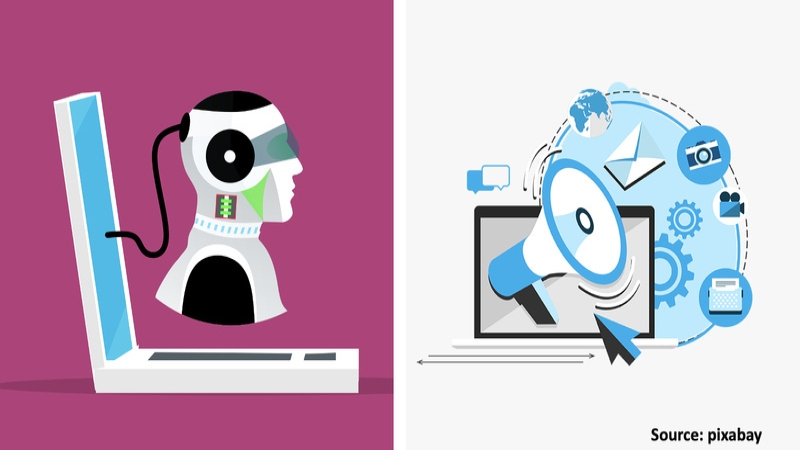
Artificial Intelligence has taken the world by storm, and it has impacted content marketing as well. From enhancing marketing strategies to customer interactions – AI is everywhere. Organizations predict that more than 85% of customer interactions will involve AI systems in the future!
AI is helping companies know more about their customers by analyzing their data. It lets them align their marketing campaigns and products. All this is helping them fetch more visitors and convert them into leads.
Ever talked to a chatbot? That's AI-powered too! So, as a new-age marketer, you need to be aware of the superpowers of AI that can take your business to another level.
Continue reading this blog to know all about how AI is taking over the digital content marketing domain.
AI and Digital Content Marketing: How Are They Connected?
Digital content marketing companies are using artificial intelligence to develop better relationships with their customers. By analyzing a customer's buying behavior, companies are able to predict their preferences.
- Using customer data, brands and also developing a buyer persona, helping them develop production services accordingly. As a result, companies are able to connect with their target users even more.
- For loyal customers, companies use AI to recommend better products and exciting offers. They're able to make this using search and purchase history.
- Companies understand their target audience by using AI-powered website analytics. It enables them to gauge what type of content their readers prefer.
- Be it videos, podcasts, or enriching blog posts. Advanced analytics lets a marketer know what the reader is seeking.
All this magic of artificial intelligence has helped many brands revamp their marketing strategies. It has resulted in better lead generation, customer retention, and product development.
Many small and medium companies are utilizing the power of AI to supercharge their efforts. It has allowed them to enhance their brand awareness and recognition.
The Future of AI-Powered Digital Content Marketing
Artificial intelligence has encouraged companies to develop more customer-centric content and products. This is possible due to the extensive customer data sets brands now collect.
So, marketing analytics, understanding buyer behaviors, email marketing, and associated concepts have been taken up a notch. Let's take a closer look at how AI is shaping the future of content marketing.
Understanding Target Customers and Buyer Behavior
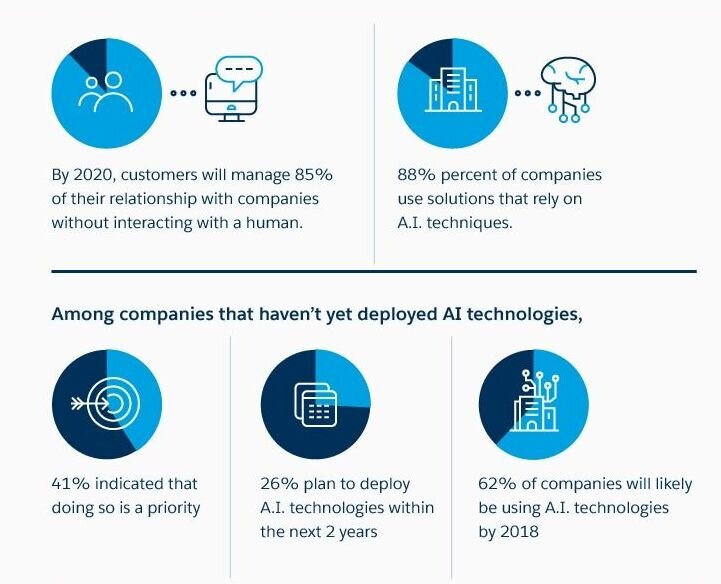
There is a lot more to understanding customers than just keeping in mind their preferences. In this age of cutthroat competition, you need to connect with your customers on a deeper level. Only then will they choose you over another brand.
But of course, the service or product you're offering remains the most important weapon.
AI helps modern marketers to keep track of their customer activities on their platforms. It can be a simple blog or any commerce platform with a lot of activity.
AI tracks every customer interaction, starting from a mouse click, a product added to a cart, a purchase, to a newsletter subscription.
Using these bits of information, brands develop a more enhanced buyer persona and reevaluate their targets.
Away's Consumer Tracking
Away is a company selling travel accessories and is famous for religiously tracking its consumer behavior. Instead of collaborating with Amazon, they use their AI-powered systems to retrieve customer data and build better experiences.
Enhanced Email Marketing
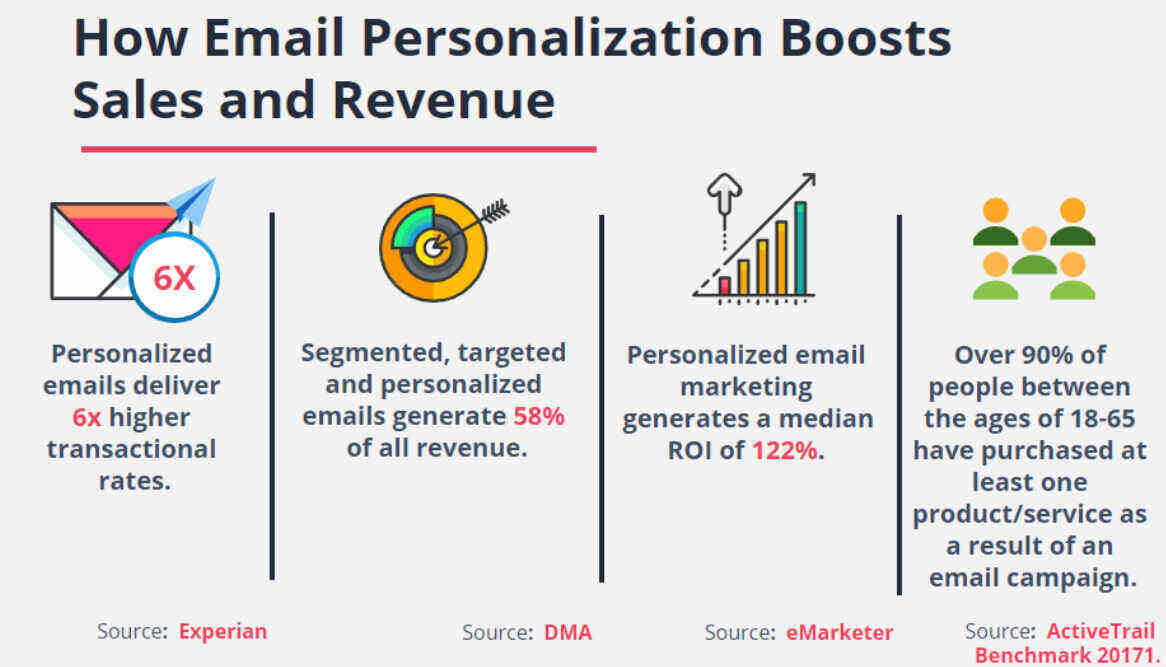
AI has revolutionized additional email marketing campaigns that were too pushy. Instead of bombarding random customers with promotional emails, AI allows brands to take a more personal approach.
These emails are not too persuasive but aim to be attractive and effective.
This is connected to the previous point - understanding consumers. AI enables companies to analyze customer data and tap into their needs. Based on that data, they can craft their personalized emails with product and service recommendations.
As a result, readers open and read these emails more than the overtly promotional ones. AI also helps digital content marketers to improve and empower their email campaigns. In addition, they'll also understand how well their campaigns might turn out.
By using AI to predict all this, marketers can develop the perfect email strategy for generating more leads.
Phrasee's AI-powered Email Marketing
UK-based software company Phrasee uses machine learning to develop eye-catchy subject lines for their marketing emails. Such attractive subject headers talk to the reader directly, leading to more open rates.
Google's Smart Compose technology allows Gmail users to develop subject lines and body copy. It recognizes the context and voice of the email content and proposes phrases accordingly while writing.
Automated Lead Generation and Sales
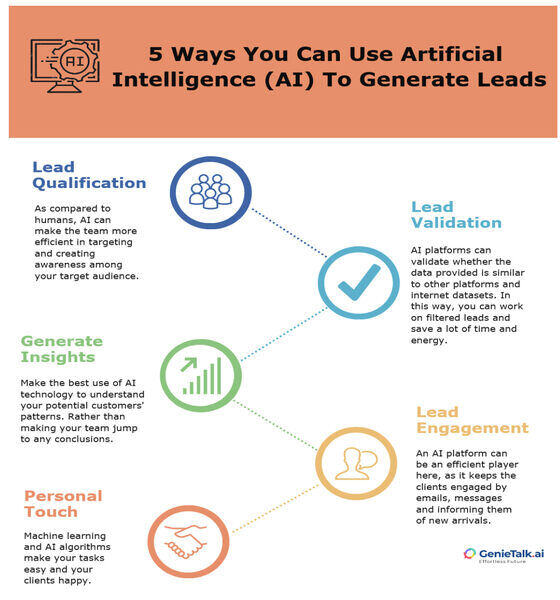
Fetching tons of leads is of no use until they're converted into buyers. Therefore, brands use modern strategies such as natural language processing and programmatic advertising to convert more.
AI helps brands understand which social media platforms will get them more leads.
- By utilizing a customer's behavioral data, AI tools let brands launch ads on appropriate platforms
- As a result, companies are able to reach out and connect to more people
- This helps businesses assess their target customers better and also those who aren't
- They can develop better marketing budgets and strategize precisely
Tools like Conversica can boost the lead generation and marketing of any company. It can start automated conversations with all your leads to extract information about them. Working as a real-time sales executive tells companies if the lead is a potential customer.
AI-Powered Marketing Analytics
AI has transformed many brands by offering them the power of marketing analytics. It is the process of searching, collecting, and analyzing customer data sources, including their shopping and social media info.
This allows the brands to get a better idea of the market and their customers. Predicting future trends and things that are "in" is also a little simpler using AI.
Using natural language processing and machine learning algorithm, companies are able to derive valuable data on customer preferences. In addition, figuring out demographic information like location, age, income, and lifestyle habits is also easier.
- This analytical data allows companies to develop more customer-specific and personalized content. For instance, if a customer is an employee, a brand can send out emails or ads regarding nearby job fairs.
- Emails about nearby music concerts can be sent to students and youngsters.
- With a more powered marketing strategy, companies develop content regarding discount coupons or cash back for loyal customers
Voice Search
Apart from manual searches, it's the era of voice searches too. When you want to search for anything, a simple "Ok, Google" or "Hey, Siri" and "best XBOX games" will do.
As per market statistics, 58% of the customers use voice search for finding local businesses. Most voice-searched answers provide results in featured snippets.
So, you need to optimize your content to help them find you easily. And this means making some changes in your SEO strategy.
Voice search has forced brands to look at conversational questions besides keyword optimization. For instance, they need to include questions like "how do I get to X station" or phrases like " cafes near me" within their content to rank better during searches.
So, if you're a marketer, you have to include high-ranking snippet keywords in your content. Also, check out the questions under "People Also Ask," and try to include those answers in your content.
The Evolution of Chatbots
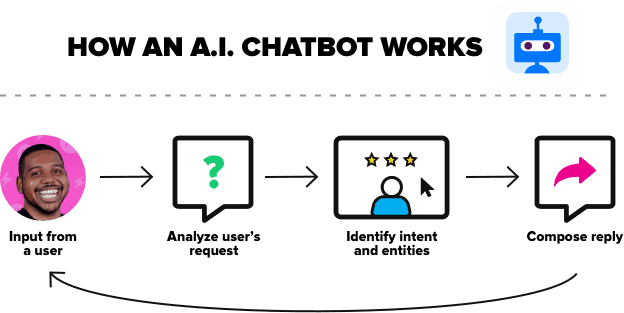
Chatbots have become a revelation among content developers to connect with your audience. At present, more than 1.4 billion people use chatbots to get answers.
So, instead of depending upon customer support agents, companies create chatbots to directly interact with their customers and solve their queries.
For instance, a customer visits a travel blog and is created by a chatbot, which asks questions about the customer's requirements. When the customer asks about local travel destinations, the chatbot might present provide info in the form of a blog or video.
So, as a content marketer, your articles and videos for chatbots need to be extremely catchy and informative.
Starbucks' Chatbot Strategy
Companies like Starbucks uses chatbots to accept orders and listen to the customer's demands. The Starbucks Barista bot is famous for answering various queries on the spot. It has skyrocketed Starbucks's customer engagement and branding.
Tips to Boost Your Digital Content Marketing Strategies
Besides using AI for your content marketing strategy, you can also strengthen it by reaching out and curating personalized content. Check out these some amazing tips –
- Live stream videos to inform your customers about the latest products and services. It's very engaging and adds a personal touch to your branding strategy.
- Repurpose your blog content for making tutorials or "how-to" videos
- Keeping the target audience in my, you can start a podcast
- Continue analyzing your competitors, and provide what they aren't offering to your customers
- Always focus on your brand's voice and try to develop more personalized content
Endnotes
While artificial intelligence will offer multiple options to elevate your content strategy, it is your content quality that matters the most. The quality and authenticity of your content will speak more about your brand than any super-efficient strategy.
So, always remember to strategize your content in a way that connects to the audience and answers their questions simply.
- Log in to post comments